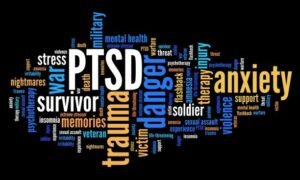A guide on Grant for PTSD Treatments 2024.

Wondering how to access a Grant for PTSD Treatments so as to embark on a journey toward healing? Here, you will find resources, support, and opportunities to reclaim your life from the grips of trauma.
Grants for PTSD treatment aim to provide financial assistance to individuals who have been impacted by Post-Traumatic Stress Disorder (PTSD). PTSD is a mental health condition that can develop after experiencing a shocking, scary, or dangerous event. It is common for individuals to feel afraid during and after a traumatic situation, triggering a “fight-or-flight” response in the body to protect against harm.
While most people naturally recover from initial trauma symptoms, some individuals may continue to experience problems and be diagnosed with PTSD. People with PTSD may feel stressed or frightened even when they are not in immediate danger. Grants for PTSD treatment help these individuals access necessary mental health services, therapy, and support to manage their symptoms and improve their overall well-being.
Understanding PTSD: Exploring Symptoms and Impacts
Post-Traumatic Stress Disorder (PTSD) is a mental health condition that can develop after experiencing or witnessing a traumatic event. Its symptoms can be categorized into four main clusters:
- Re-experiencing:
People with PTSD often re-experience the traumatic event through distressing memories, flashbacks, nightmares, or intrusive thoughts. These experiences can be intense and overwhelming, making the individual feel as though they are reliving the trauma.
- Avoidance:
Individuals may actively avoid reminders of the traumatic event, such as places, people, activities, or conversations that evoke distressing memories. This avoidance behavior can interfere with daily life and social functioning.
- Negative Changes in Mood and Cognition:
PTSD can lead to persistent negative beliefs about oneself, others, or the world. This may manifest as feelings of guilt, shame, or detachment from others. Additionally, individuals with PTSD may experience difficulty remembering key aspects of the traumatic event, negative thoughts about the future, and diminished interest in activities they once enjoyed.
- Hyperarousal:
People with PTSD may feel constantly on edge or hypervigilant, as if they are in a state of heightened arousal. This can result in irritability, angry outbursts, difficulty concentrating, sleep disturbances, and exaggerated startle responses.
By understanding the symptoms and impacts of PTSD, individuals can better recognize the signs, seek appropriate support, and work toward healing and recovery
1. Triggers and Responses:
Triggers are external stimuli or reminders that evoke distressing memories or emotions associated with the traumatic event. These triggers can vary widely from person to person and may include sights, sounds, smells, or situations reminiscent of the trauma. When triggered, individuals with PTSD may experience intense emotional or physiological responses, such as panic attacks, rapid heartbeat, sweating, or dissociation.
2. Physical and Emotional Effects:
PTSD can have profound physical and emotional effects on individuals. Physically, it may manifest as headaches, gastrointestinal problems, chronic pain, fatigue, or compromised immune function. Emotionally, PTSD can lead to symptoms of depression, anxiety, anger, guilt, shame, or feelings of numbness and detachment.
3. Impact on Relationships:
PTSD can significantly impact relationships with family members, friends, and romantic partners. Individuals with PTSD may struggle with intimacy, trust, and communication, leading to strained or fractured relationships. Loved ones may feel frustrated, helpless, or uncertain about how to provide support, leading to misunderstandings or conflicts.
4. Work and Academic Performance:
The symptoms of PTSD can also interfere with work or academic performance. Individuals may struggle to concentrate, make decisions, or meet deadlines due to intrusive thoughts, flashbacks, or emotional distress. This can result in absenteeism, decreased productivity, conflicts with colleagues or supervisors, and even job loss or academic underachievement.
5. Co-occurring Disorders:
PTSD often co-occurs with other mental health conditions, such as depression, anxiety disorders, substance use disorders, or eating disorders. These co-occurring disorders can exacerbate PTSD symptoms and complicate treatment, requiring a comprehensive and integrated approach to care.
6. Developmental Considerations:
The manifestation and impact of PTSD may vary across different age groups. Children and adolescents with PTSD may exhibit symptoms such as regression, separation anxiety, nightmares, or behavioral problems. Adults may struggle with relationship issues, employment instability, or self-destructive behaviors. Older adults may experience challenges related to coping with past traumas, managing chronic health conditions, or facing end-of-life concerns.
7. Cultural Factors:
Cultural norms, beliefs, and stigmas surrounding mental health and trauma can influence how PTSD is perceived, expressed, and addressed within different cultural groups. Factors such as ethnicity, religion, language, socioeconomic status, and immigration status may impact help-seeking behaviors, treatment preferences, and the availability of culturally competent care.
8. Gender Differences:
Research suggests that there may be gender differences in the prevalence, presentation, and response to PTSD. Women are more likely to experience certain types of trauma, such as sexual assault or domestic violence, which can contribute to higher rates of PTSD among women compared to men. Additionally, societal expectations, gender roles, and experiences of trauma may shape how PTSD symptoms are expressed and perceived across genders.
9. Resilience and Coping Strategies:
Despite the challenges posed by PTSD, many individuals demonstrate remarkable resilience and adaptability in coping with their symptoms. Coping strategies may include seeking social support, engaging in therapy or counseling, practicing relaxation techniques (such as mindfulness or deep breathing exercises), participating in creative outlets or hobbies, maintaining a healthy lifestyle (including regular exercise, nutrition, and sleep), and connecting with peer support groups or advocacy organizations.

Grants Available for PTSD Treatment
By understanding the different types of grants available for PTSD treatment, individuals and organizations can explore various funding opportunities to support the delivery of high-quality care and services for those affected by PTSD.
Here are the types of grants available for PTSD treatment:
1. Government Grants:
Many governments offer grants to fund PTSD treatment programs and research initiatives. These grants may be provided by federal, state, or local agencies and are often targeted toward specific populations or initiatives. For example, the U.S. Department of Veterans Affairs (VA) offers grants to support PTSD treatment for military veterans, while government agencies may also provide funding for community-based mental health programs that serve individuals with PTSD.
2. Nonprofit Organization Grants:
Nonprofit organizations dedicated to mental health advocacy and support may offer grants to fund PTSD treatment services. These organizations may raise funds through donations, fundraising events, and grantmaking initiatives to support a variety of programs, including therapy, support groups, outreach efforts, and public awareness campaigns related to PTSD.
3. Research Grants:
Research institutions and academic organizations may offer grants to support studies focused on understanding PTSD, developing innovative treatments, and improving mental health outcomes for individuals with PTSD. These grants may fund basic science research, clinical trials, translational research, or community-based participatory research projects aimed at addressing gaps in knowledge and advancing the field of PTSD treatment.
4. Community Foundation Grants:
Community foundations and philanthropic organizations often provide grants to support local initiatives addressing mental health needs, including PTSD treatment and support services. These grants may be awarded to nonprofit organizations, community clinics, hospitals, or grassroots initiatives that provide accessible and culturally sensitive care to individuals affected by PTSD within specific geographic regions.
5. Corporate Grants:
Some corporations and businesses offer grants or sponsorships to support mental health programs and initiatives, including PTSD treatment services. These grants may be part of corporate social responsibility (CSR) initiatives aimed at improving community health and well-being or may be awarded through employee-driven charitable giving programs.
6. Educational Institution Grants:
Colleges, universities, and academic medical centers may offer grants to support PTSD treatment services provided through their healthcare facilities or mental health clinics. These grants may fund clinical programs, research projects, training opportunities for mental health professionals, or community outreach efforts aimed at raising awareness and reducing the stigma surrounding PTSD.
7. Private Foundation Grants:
Private foundations and family trusts dedicated to mental health advocacy may offer grants to support PTSD treatment and recovery initiatives. These grants may be awarded through competitive grantmaking processes and may prioritize funding for evidence-based interventions, innovative approaches to care, or programs serving underserved populations disproportionately affected by PTSD.
8. International Grants:
International organizations, such as the World Health Organization (WHO) or the United Nations (UN), may provide grants to support PTSD treatment and mental health services in low- and middle-income countries affected by conflict, disaster, or humanitarian crises. These grants may fund capacity-building efforts, training programs for healthcare providers, or the development of culturally appropriate interventions for communities impacted by trauma.

READ MORE: NY State First Time Home Buyer Grants Guide 2024.
Eligibility Criteria: Who Qualifies for PTSD Treatment Grants?
By understanding the eligibility criteria for PTSD treatment grants, individuals can assess their qualifications and determine their eligibility for various funding opportunities to support their mental health needs.
Here are the eligibility criteria for PTSD treatment grants:
1. Diagnosis of PTSD:
Typically, individuals seeking PTSD treatment grants must have a formal diagnosis of Post-Traumatic Stress Disorder (PTSD) from a licensed mental health professional. This diagnosis is often based on criteria outlined in the Diagnostic and Statistical Manual of Mental Disorders (DSM-5) or an equivalent diagnostic tool recognized by the granting organization.
2. Residency Status:
Some grants may have residency requirements, meaning that applicants must be legal residents of a specific geographic area or country to be eligible. This requirement helps ensure that grant funds are allocated to individuals within the designated community or jurisdiction.
3. Demographic Factors:
Certain grants may target specific demographic groups that are disproportionately affected by PTSD, such as military veterans, survivors of domestic violence or sexual assault, first responders, refugees, or individuals from marginalized communities. Eligibility criteria may include factors such as age, gender, ethnicity, socioeconomic status, or military service history.
4. Income Level:
Some grants may have income eligibility requirements, particularly if they are funded through government programs or targeted toward underserved populations with limited financial resources. Applicants may need to demonstrate financial need through income verification documents or other means to qualify for assistance.
5. Insurance Status:
Grant eligibility may be influenced by the applicant’s insurance status. For example, some grants may prioritize individuals who are uninsured, underinsured, or facing barriers to accessing mental health services through traditional insurance coverage. Others may require that applicants exhaust all available insurance benefits before seeking grant assistance.
6. Treatment History:
Granting organizations may consider the applicant’s history of PTSD treatment and previous attempts to access care. While some grants may prioritize individuals who have not received adequate treatment or who face barriers to accessing ongoing care, others may require documentation of past treatment efforts and treatment outcomes.
7. Referral or Endorsement:
In some cases, individuals may need a referral or endorsement from a healthcare provider, social worker, advocate, or other professional to be considered for a PTSD treatment grant. This referral may serve to verify the individual’s diagnosis, treatment needs, or eligibility for specific grant programs.
8. Commitment to Treatment:
Grant applicants may be required to demonstrate their commitment to participating in PTSD treatment programs funded by the grant. This may involve signing a treatment agreement, attending counseling sessions, participating in support groups, or adhering to a treatment plan developed in collaboration with a healthcare provider.
9. Compliance with Grant Requirements:
Applicants must comply with all requirements outlined in the grant application process, including submitting required documentation, meeting deadlines, and adhering to any programmatic guidelines or reporting requirements. Failure to meet these obligations may impact eligibility for grant funding.
10. Adherence to Ethical Standards:
Granting organizations may have ethical standards or guidelines that applicants must adhere to, such as maintaining confidentiality, respecting the rights of participants, or avoiding conflicts of interest. Applicants must demonstrate their commitment to upholding these standards throughout the grant application and implementation process.
How to Apply for PTSD Treatment Grants: Step-by-Step Guide
By following these steps, individuals can navigate the process of applying for PTSD treatment grants effectively and increase their chances of accessing funding to support their mental health needs.
Here’s a step-by-step guide on how to apply for PTSD treatment grants:
1. Research Grant Opportunities:
Start by researching available PTSD treatment grants from government agencies, nonprofit organizations, research institutions, community foundations, corporate sponsors, and other funding sources. Look for grants that align with your specific needs, demographic characteristics, and treatment goals.
2. Review Eligibility Criteria:
Carefully review the eligibility criteria for each grant opportunity to ensure that you meet all requirements. Pay attention to factors such as diagnosis of PTSD, residency status, demographic considerations, income level, insurance status, treatment history, referral requirements, and compliance with grant guidelines.
3. Gather Required Documentation:
Collect all required documentation and supporting materials needed to complete the grant application. This may include a formal diagnosis of PTSD from a licensed mental health professional, proof of residency, income verification documents, insurance information, treatment records, referral letters, and any other documentation specified in the grant application guidelines.
4. Complete Application Forms:
Fill out the grant application forms accurately and completely, providing all requested information and supporting documentation. Be sure to follow the instructions provided in the application guidelines and format your responses according to the specified requirements, such as word limits, formatting guidelines, and submission deadlines.
5. Write a Compelling Narrative:
Craft a compelling narrative in your grant application that highlights your personal experience with PTSD, your treatment needs, and the potential impact of receiving grant funding on your mental health and well-being. Be honest, authentic, and specific in describing your symptoms, challenges, goals, and aspirations for recovery.
6. Seek Professional Assistance if Needed:
Consider seeking assistance from a mental health professional, social worker, advocate, or grant-writing consultant to help you navigate the grant application process, clarify eligibility requirements, gather necessary documentation, and articulate your treatment needs effectively.
7. Submit Application by Deadline:
Submit your completed grant application by the specified deadline, ensuring that all required materials are included and submitted in the manner specified by the granting organization. Double-check your application for accuracy and completeness before finalizing your submission.
8. Follow Up as Needed:
After submitting your grant application, follow up with the granting organization as needed to confirm receipt of your application, address any questions or concerns, and inquire about the status of your application. Be proactive in advocating for yourself and seeking assistance if you encounter any challenges or barriers during the application process.
9. Prepare for Possible Interviews or Reviews:
Be prepared to participate in interviews, reviews, or additional steps in the grant review process if required by the granting organization. Familiarize yourself with the grant review criteria and be ready to discuss your treatment needs, goals, and eligibility for funding.
10. Stay Informed and Persistent:
Stay informed about updates, announcements, and decisions related to the grant application process, and be persistent in pursuing opportunities for funding. If your application is not successful, seek feedback from the granting organization, explore alternative funding sources, and consider reapplying in the future with a revised application.
Tips for Writing a Compelling Grant Application
By following these tips, you can write a compelling grant application that effectively communicates your project or program’s value, impact, and potential to positively contribute to PTSD treatment and recovery efforts.
1. Read the Guidelines Carefully:
Before you start writing, thoroughly review the grant guidelines provided by the funding organization. Pay close attention to eligibility criteria, application instructions, formatting requirements, and evaluation criteria to ensure that your application meets all the necessary criteria.
2. Understand the Mission and Goals:
Familiarize yourself with the mission, goals, and priorities of the granting organization. Tailor your grant application to align with the organization’s objectives and demonstrate how your project or proposal addresses their specific areas of interest or focus.
3. Tell Your Story:
Use your grant application as an opportunity to tell your personal or organizational story in a compelling and authentic way. Describe your background, experiences, challenges, and aspirations related to PTSD treatment, emphasizing the significance of the project or program you are seeking funding for.
4. Be Clear and Concise:
Write clearly and concisely, avoiding jargon, technical language, or unnecessary complexity. Use straightforward language to communicate your ideas effectively and ensure that reviewers can easily understand the purpose, goals, and impact of your proposed project or program.
5. Provide Supporting Evidence:
Back up your claims and assertions with relevant evidence, data, statistics, and examples to demonstrate the need for your project or program and the potential impact it could have. Use credible sources and research findings to support your arguments and strengthen your case for funding.
6. Focus on Impact and Outcomes:
Emphasize the anticipated impact and outcomes of your proposed project or program, highlighting the positive changes it could bring about for individuals affected by PTSD, their families, communities, or society as a whole. Clearly articulate the goals, objectives, and measurable outcomes you hope to achieve with grant funding.
7. Highlight Strengths and Unique Features:
Identify and highlight the strengths, unique features, and innovative aspects of your project or program that set it apart from others. Clearly articulate the value proposition of your proposal and explain why it deserves funding over competing applications.
8. Address Potential Challenges and Risks: Acknowledge any potential challenges, risks, or limitations associated with your proposed project or program, and describe how you plan to mitigate these challenges and ensure project success. Be transparent and realistic about the potential obstacles you may encounter and how you intend to overcome them.
9. Engage Reviewers with Compelling Writing: Write in a compelling and engaging manner that captures the attention of reviewers and holds their interest throughout the application. Use storytelling techniques, anecdotes, and descriptive language to draw readers in and make your application memorable.
10. Proofread and Revise:
Take the time to proofread and revise your grant application carefully before submitting it. Check for spelling and grammatical errors, ensure consistency in formatting and style, and seek feedback from colleagues, mentors, or peers to improve the clarity, coherence, and persuasiveness of your writing.

Resources for Finding PTSD Treatment Grants
Finding PTSD treatment grants can be a challenging task, but there are several resources available to help individuals and organizations locate funding opportunities. Here are some resources to consider:
1. Government Grant Databases:
Explore government grant databases, such as Grants.gov in the United States, to search for federal grant opportunities related to PTSD treatment and mental health services. These databases allow users to filter grants by category, agency, eligibility criteria, and keyword search terms.
2. Nonprofit Organization Websites:
Visit the websites of nonprofit organizations dedicated to mental health advocacy and support, such as the National Alliance on Mental Illness (NAMI), Mental Health America (MHA), or the Anxiety and Depression Association of America (ADAA). These organizations may provide information on available grants, funding opportunities, and resources for PTSD treatment.
3. Foundation Directories:
Access foundation directories, such as the Foundation Directory Online or the Chronicle of Philanthropy, to search for grants from private foundations, family trusts, and corporate giving programs. These directories provide comprehensive listings of grantmakers and their funding priorities, allowing users to identify potential sources of support for PTSD treatment initiatives.
4. Community Mental Health Centers:
Contact local community mental health centers, clinics, hospitals, and social service agencies in your area to inquire about available grant-funded programs and services for individuals with PTSD. These organizations may offer information, referrals, or direct services funded by grants or government contracts.
5. Veterans Affairs (VA) Resources:
For military veterans and their families, explore resources offered by the U.S. Department of Veterans Affairs (VA) to access PTSD treatment grants, healthcare services, and support programs. Visit the VA’s website or contact your local VA medical center for information on available benefits and eligibility criteria.
6. Professional Associations:
Check with professional associations and organizations representing mental health professionals, counselors, therapists, social workers, and psychiatrists for information on grants, scholarships, and funding opportunities related to PTSD treatment. These associations may offer resources, training programs, or research grants to support members’ professional development and service delivery.
7. Research Institutions:
Explore research institutions, academic medical centers, and universities conducting studies on PTSD treatment and recovery. These institutions may offer grant-funded research projects, clinical trials, or treatment programs that provide opportunities for individuals to participate in innovative treatment interventions at no cost.
8. Online Grant Search Engines:
Utilize online grant search engines and platforms, such as GrantWatch, Foundation Center Online, or Candid (formerly GuideStar), to search for grants by keyword, category, geographic location, and other criteria. These platforms aggregate grant opportunities from a variety of sources and provide tools to help users identify relevant funding opportunities for their needs.
9. Community Foundations:
Investigate grants offered by local community foundations, philanthropic organizations, and charitable trusts serving your area. These organizations may offer funding for community-based mental health initiatives, including PTSD treatment programs, support services, and public education campaigns.
10. Peer Support Networks:
Connect with peer support networks, online forums, support groups, and advocacy organizations for individuals affected by PTSD. These networks may provide information, resources, and peer-to-peer support to help individuals navigate the grant application process, access treatment options, and advocate for their mental health needs.
Frequently Asked Questions About PTSD Treatment Grants
1. What are PTSD treatment grants?
– PTSD treatment grants are financial assistance programs offered by government agencies, nonprofit organizations, foundations, and other funding sources to support initiatives aimed at providing treatment and support services for individuals affected by Post-Traumatic Stress Disorder (PTSD).
2. Who can apply for PTSD treatment grants?
– Eligibility criteria for PTSD treatment grants vary depending on the specific grant program and funding source. Typically, individuals, organizations, healthcare providers, researchers, and community-based agencies involved in PTSD treatment and support services may be eligible to apply for grants.
3. What types of projects or programs do PTSD treatment grants support?
PTSD treatment grants may support a wide range of projects and programs, including but not limited to:
- Access to mental health counseling and therapy for individuals with PTSD.
- Support groups and peer-led initiatives for PTSD survivors and their families.
- Training programs for healthcare providers and mental health professionals on PTSD diagnosis and treatment.
- Research studies and clinical trials investigating innovative treatment interventions for PTSD.
- Community outreach and education initiatives to raise awareness about PTSD and reduce stigma.
4. How can I find PTSD treatment grants?
– There are several resources available to help individuals and organizations locate PTSD treatment grants, including government grant databases, nonprofit organization websites, foundation directories, community mental health centers, veterans’ resources, professional associations, research institutions, online grant search engines, and peer support networks.
5. What should I include in a grant application for PTSD treatment funding?
– When applying for PTSD treatment grants, it is important to provide comprehensive information about the proposed project or program, including the goals, objectives, target population, methods, anticipated outcomes, budget, timeline, and evaluation plan. Applicants should also demonstrate the need for funding, the relevance of the project to the granting organization’s priorities, and the potential impact of the proposed intervention on individuals affected by PTSD.
6. What are some tips for writing a successful grant application for PTSD treatment funding?
– Tips for writing a successful grant application for PTSD treatment funding include reading the guidelines carefully, understanding the mission and goals of the granting organization, telling your story in a compelling way, providing supporting evidence, focusing on impact and outcomes, highlighting strengths and unique features, addressing potential challenges and risks, engaging reviewers with compelling writing, and proofreading and revising your application before submission.
7. What happens after I submit a grant application for PTSD treatment funding?
– After submitting a grant application for PTSD treatment funding, the granting organization will review your application based on its evaluation criteria and selection process. This may involve peer review, expert panel review, or other evaluation methods. Applicants may be notified of funding decisions, asked for additional information or clarification, or invited to participate in interviews or reviews as part of the grant review process.
Conclusion on grant for PTSD treatments.
PTSD treatment grants play a crucial role in supporting individuals, organizations, and communities in addressing the impact of Post-Traumatic Stress Disorder (PTSD) and promoting healing and recovery. These grants provide financial assistance for a variety of initiatives, including access to counseling and therapy, support groups, training programs for healthcare providers, research studies, and community outreach efforts.
By accessing PTSD treatment grants, individuals affected by PTSD can receive the support and resources they need to overcome the challenges associated with their condition and rebuild their lives. It is essential for applicants to carefully research available grant opportunities, understand eligibility criteria, and craft compelling grant applications that clearly articulate their treatment needs, goals, and proposed interventions. Through collaboration, innovation, and dedication, stakeholders can work together to ensure that individuals with PTSD have access to the comprehensive and effective treatment and support services they need to thrive.


